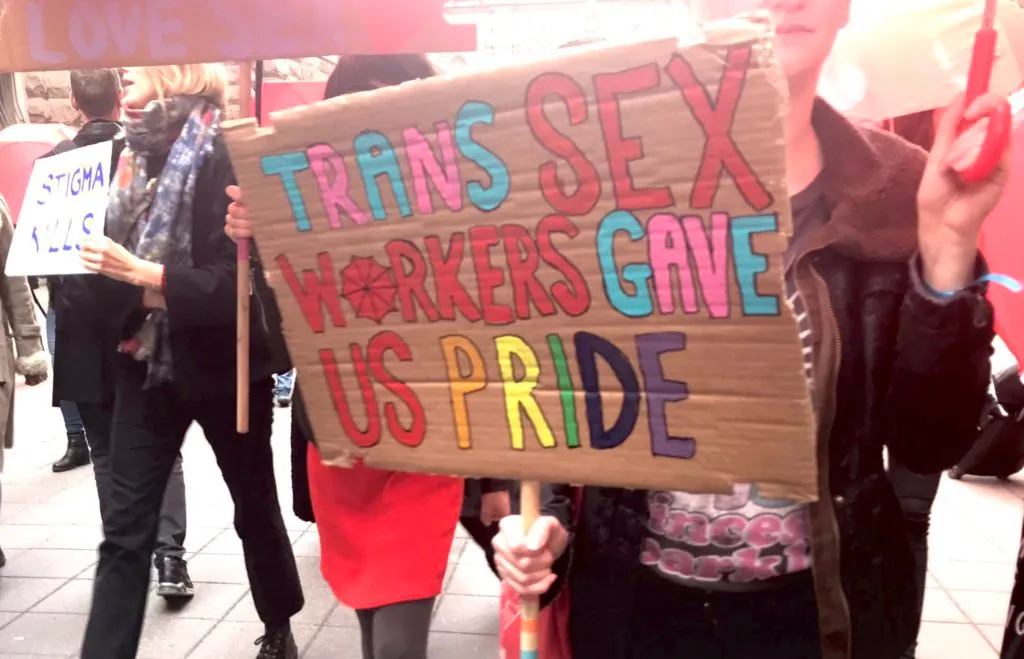Placard at a sex workers’ rights march in Stockholm. (Twitter/SWARM)
Trans sex workers in Greece who don’t have legal gender recognition are being excluded from government support in the face of the coronavirus pandemic.
In Greece, where sex work is legalised but heavily regulated, only Greek nationals with a female gender marker in their documents are allowed to work in indoor venues — thus becoming eligible for government support during the pandemic.
This means that trans women sex workers without legal gender recognition — as well as undocumented migrant sex workers, refugee sex workers and asylum-seeking sex workers — are not deemed eligible for government financial support, according to Open Democracy.
Greece is not alone. Across Europe, in countries where sex work is fully or partially criminalised, sex workers are struggling to survive during lockdown and are unable to access the financial support available to other workers.
Sex workers committee demands governments protect marginalised workers.
With COVID-19 shining a light on the lack of protection in Europe for sex workers, who are being excluded from government financial support packages, the International Committee on the Rights of Sex Workers in Europe (ICRSE) has published a call to action.
“Sex workers of all genders have been amongst the hardest hit by the COVID-19 pandemic in Europe and Central Asia,” ICRSE said in its call to action.
“Lock downs, self-isolation and travel restrictions have put us out of work, pressing some onto the streets and into destitution, where the risks are heightened by the pandemic.
As sex work is criminalised to varying degrees in all countries of the region, most of us have been unable to access the safeguards provided for many other workers, such as sick pay and social benefits.
The call to action, which brings together the COVID-19 response from sex work organisations across Europe and Central Asia, demands that government’s work to implement evidence- and rights-based policies to protect marginalised workers, both during the coronavirus pandemic and in the aftermath.
“Our communities all across Europe report systemic exclusion from government bailouts and support measures to substitute missing income, and in many contexts we are even facing heightened surveillance and policing,” ICRSE continued.
“A large number of undocumented migrants working in the industry face no protection from states and social services, whilst trans sex workers and women of colour struggle with extremely high levels of discrimination and violence.”
